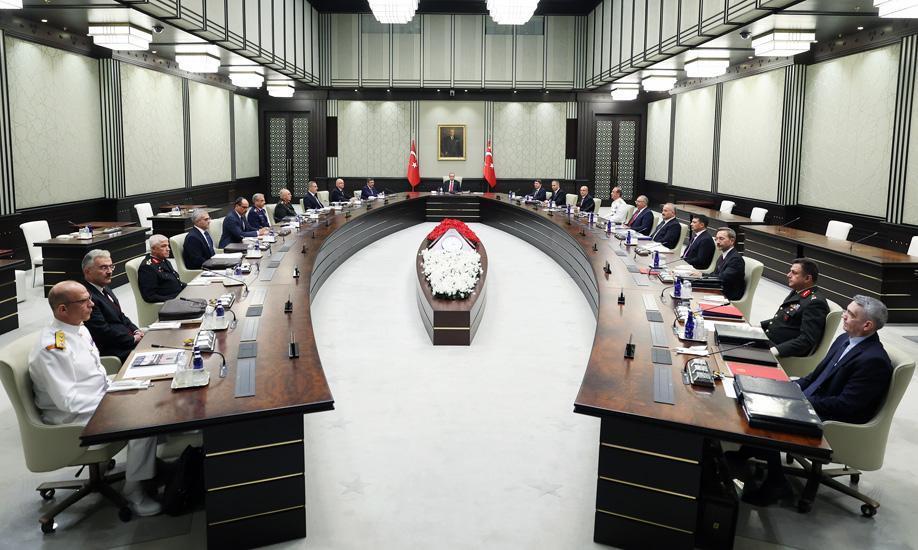
The National Security Council chaired by President Recep Tayyip Erdoğan has called upon Russia and Ukraine to swiftly end the war, emphasizing the potential adverse regional ramifications.
During the three-hour meeting in the capital Ankara on Aug. 9, the council extensively deliberated the course of the Russia-Ukraine conflict and its potential future implications. In a comprehensive seven-point statement issued following the session, Erdoğan articulated that heightened tensions in the Black Sea were "detrimental to all parties involved."
The council's declaration unequivocally urged all stakeholders to engage in negotiations promptly and conclude the conflict, stressing that a return to the crucial grain deal was paramount to mitigating negative consequences for vulnerable nations and bolstering food stability.
The agreement, a diplomatic effort brokered by Türkiye and the United Nations in July 2022, faced setbacks when Russia unilaterally withdrew on July 17, citing unmet obligations by its Moscow counterparts. Subsequently, Russia launched a series of strikes on Ukrainian ports, including the strategic port city of Odesa.
Moreover, the council received updates on successful operations conducted domestically and internationally "against various threats to national unity and solidarity." The statement singled out PKK, FETÖ and ISIL terror organizations as specific targets of these operations.
Addressing the centennial anniversary of the Treaty of Lausanne, a pivotal accord that recognized the modern Turkish state, the council affirmed Türkiye's steadfast commitment to upholding the treaty's principles, which have underpinned regional peace and stability for a century.
The council further examined Türkiye's improving collaboration with Iraq, highlighting the potential benefits for both countries and the broader region. Additionally, the council looked to the international community for suitable solutions to emerging challenges in Africa that could have far-reaching implications.
In response to recent instances of disrespect toward the Quran, Islam's holy book, in certain European nations, the council called on responsible states to reevaluate their actions. "States that do not fulfill their responsibilities are invited to change their attitudes as soon as possible and to fight together against attacks on sacred values by realizing the devastating effects that the seeds of hatred they sow under the guise of freedom of expression can cause," read the statement.
Climate change also emerged as a significant topic of discussion, with the council focusing on its potential to trigger a range of issues, including irregular migration, social unrest and interstate conflicts. The council stressed that "the fair and sincere efforts of the international community can bring a solution to this common problem of humanity."
Erdoğan concluded the meeting by awarding the "State Distinguished Service Medal" to Foreign Minister Hakan Fidan, former deputy undersecretary, undersecretary and chairman at the National Intelligence Organization (MİT).
Fidan, who also served as the president's special representative, accepted the medal "on behalf of my friends who were martyred to carry out your orders in Libya, Karabakh, Syria and Iraq while serving with me."